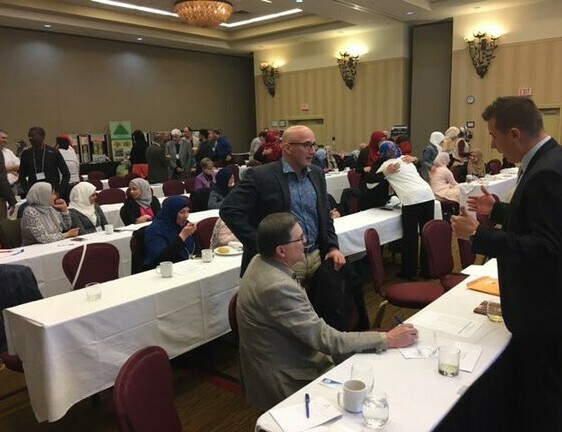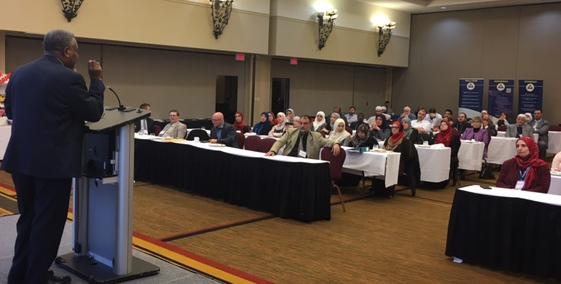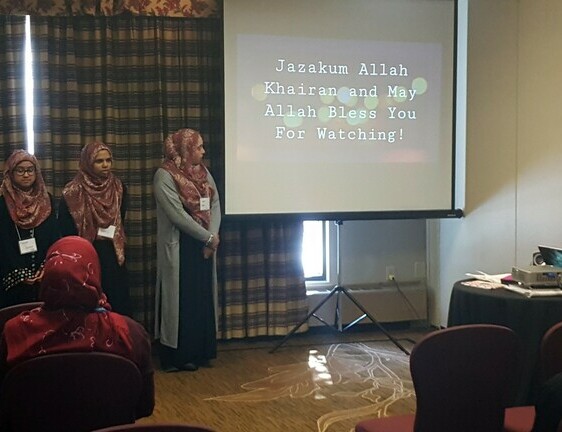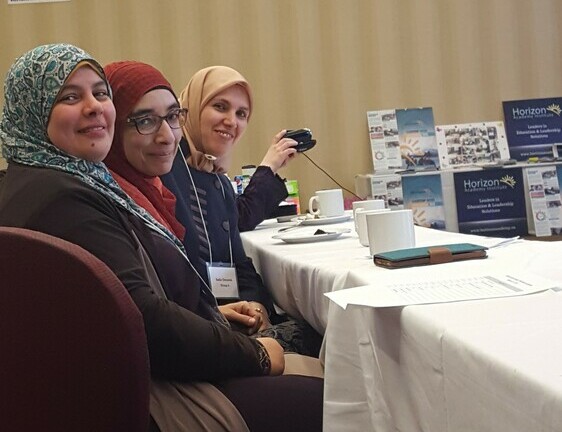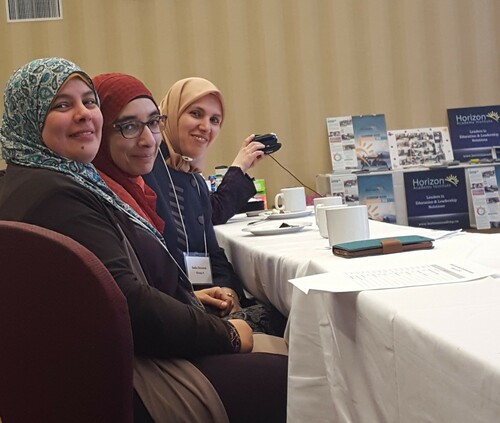
About 100 educators from Western Canada, including teachers and instructors from Palliser’s Islamic schools, took part in a day-long Alberta Iqra Arabic Conference in the Kananaskis Friday.
This conference was the first jointly organized by Palliser Regional Schools, the Muslim Community Foundation of Calgary, Horizon Academy Institute and Almadina Language Charter Academy.
Palliser Director of Learning Adam Browning said interest in and opportunities for Arabic language instruction have grown since he started working as a principal in an Arabic language program in 2008.
In Calgary, an estimated 50,000 students have an interest or are enrolled in some form of Arabic language programming, he said. Calgary Islamic School’s Akram Jomaa and Omar Bin Al-Khattab campuses serve about 1,500 students. Horizon Academy Institute recently formed a partnership with Palliser to open a new full-time school in southwest Calgary this fall that will offer Arabic instruction.
The interest in learning one of the six official languages of the United Nations is what made the conference all the more pertinent at a global level, Browning said. Teachers of Arabic need opportunities to work together and share best practices and strategies for effective instruction.
“The focus of this conference was on teaching and learning,” Browning said. “It’s about how to effectively teach a second language, to develop literacy in Arabic and to understand the many factors that affect language acquisition.”
The Alberta Iqra Arabic Conference takes its name from the first word of the Qur’an, the sacred book of the Islamic faith. The first word in the text is “iqra,” translated as “read.”
Special guests at the conference included representatives from Alberta Education.
Many of Palliser’s Islamic school students are English language learners, adding another dimension to their language needs.
“This is about the power of coming together for collaboration,” Browning said. “By working with colleagues, we’re expanding the repertoire of teachers to meet the literacy and language needs of our kids.”
The demand for learning Arabic around the globe was one of the messages that most struck conference participant Imam Mohammed Haq. An Arabic instructor at the Omar Bin Al-Khattab campus, he found keynote speaker Dr. Abdullah Idris Ali’s statistics about the language impressive. Ali founded Canada’s first Islamic school 35 years ago and currently serves as executive director of the Islamic Society of North America. He told the conference the Arabic language has survived and thrived for 1,500 years when others have disappeared. Its strength and duration reflect that the language isn’t tied to any single country or race.
Language evolves over time, and Arabic has a depth of language formed over the centuries — a broad and highly developed vocabulary with both modern and classical forms. Browning compares classic Arabic to Shakespearean English, and the complexity of the language is part of its strength.
Haq teaches in OBK’s Tahfeeth program for Grade 6-9 students who are memorizing the Qu’ran. He said the opportunities available to students who learn Arabic are many because once they learn classical Arabic, they’ll have no problems with the modern language and they’ll be able to communicate with millions of people from around the globe. Haq has first-hand experience with doors opening because of Arabic fluency. While on a trip to Beijing in 2006, he found an Arabic school near his hotel and was able to converse with Chinese students.
Haq said the Iqra conference was energizing, with sessions he attended offering strategies and inspiration for his work.
“This conference was a great beginning,” adding he hopes to see Palliser and its partners make this an annual event. “It was a great experience for me.”
Haq said Palliser’s professional development opportunities have been excellent, not only this conference, but also a 7 Habits of Highly Effective People workshop offered to OBK staff earlier this year.
Through the day, he had an opportunity to meet colleagues from other school that offer Arabic language instruction in Alberta.
“People want to co-operate,” Haq said. “People want to exchange ideas on how to teach Arabic as a second language in Canada. They want to be co-operative in this process. . . There was an eagerness.”
The OBK team has been discussing how to help students memorizing the Qu’ran — a tradition many young Muslims aspire to — to develop comprehension of the text. That’s a tall order, especially when Tahfeeth students are juggling a full Alberta curriculum course load and memorizing the 600-page religious text at the same time, but Haq said the conference proved motivating to this goal.


